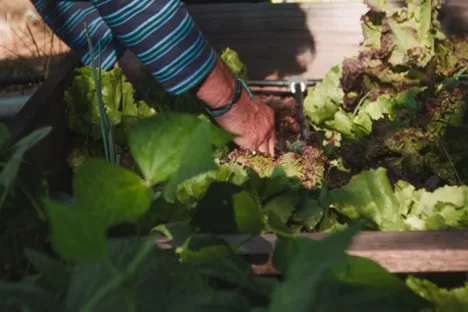Budget Gardening Tips for Beginners

Budget Gardening Tips for Beginners
Gardening is a wonderful hobby that can bring joy, beauty, and even fresh produce to your life. But if you're a beginner, the costs can add up quickly. Don't worry, though! Gardening on a budget for beginners is totally possible. Let's dive into some practical tips to help you create a thriving garden without breaking the bank.
Why Start with Cheap Gardening?
Starting with cheap gardening doesn't mean your garden will be any less beautiful. It's all about being smart with your resources. Plus, it's a great way to learn the ropes without investing too much upfront.
Embrace Frugal Gardening
Frugal gardening is about making the most of what you have. Here's how you can do it:
Use What You Have
Look around your home. Do you have old pots, containers, or even boots that can be repurposed as planters? Low-cost gardening is all about finding new uses for old items.
Start Small
You don't need a massive garden to enjoy the hobby. In fact, starting small is one of the best beginner garden tips. A few pots on your balcony or a small vegetable patch is a great way to begin.
Plan Ahead
A little planning goes a long way in budget garden ideas. Sketch out what you want your garden to look like, then make a list of what you need. This will help you avoid impulse buys.
Choose Budget-Friendly Plants
Some plants are more affordable than others. Seeds, for instance, are cheaper than seedlings. Also, consider plants that are easy to propagate, like succulents or herbs.
Seeds vs Seedlings: Which is Cheaper?
Seeds are almost always cheaper than seedlings. While they require more patience, they're a great way to save money. Plus, watching a seed sprout is incredibly rewarding!
Propagate Your Plants
Propagation is a fantastic way to get more plants for free. Many plants can be propagated from cuttings, leaves, or roots. It's like magic!
Composting: Turn Waste into Wealth
Composting is a game-changer in gardening on a budget for beginners. It turns your kitchen scraps into nutrient-rich fertilizer. Plus, it's eco-friendly!
DIY Whenever Possible
From making your own potting mix to creating homemade plant food, DIY is your best friend in cheap gardening. It's amazing what you can create with a few simple ingredients.
Thrift Store Finds
Thrift stores are a treasure trove for gardeners on a budget. You can find unique pots, tools, and even plants at a fraction of the cost.
Join a Garden Club or Community
Garden clubs are a great place to learn, share, and even swap plants. Many gardeners love to share cuttings or seeds, which can help you grow your garden for free.
Online Resources for Budget Garden Ideas
The internet is full of resources for gardening on a budget for beginners. Websites like Gardeners.com offer a wealth of information to help you get started.
Patience is Key
Remember, gardening is a journey. Don't rush out and buy everything at once. Take your time, learn as you go, and enjoy the process.
Conclusion
Gardening on a budget for beginners is not only possible but also incredibly rewarding. It's about being creative, resourceful, and patient. So, get out there, get your hands dirty, and watch your garden grow!
FAQs
1. What are the cheapest vegetables to grow?
Some of the cheapest vegetables to grow include lettuce, radishes, green beans, and potatoes. These veggies are easy to grow and produce a lot of food for the cost.
2. How can I save money on soil?
You can save money on soil by making your own compost or potting mix. Also, many cities offer free or discounted compost to residents.
3. Are there any garden grants for beginners?
While not common, there are some grants and programs that support gardening, especially for community or school gardens. Check with your local government or non-profit organizations.
4. How can I get free plants?
You can get free plants by joining a garden club, asking friends or neighbors for cuttings, or even finding plants in the wild that need rescuing.
5. What's the biggest mistake beginners make in gardening?
One of the biggest mistakes is overwatering or underwatering plants. It's important to learn the watering needs of your specific plants to keep them healthy.
0 Response to " Budget Gardening Tips for Beginners"
Post a Comment